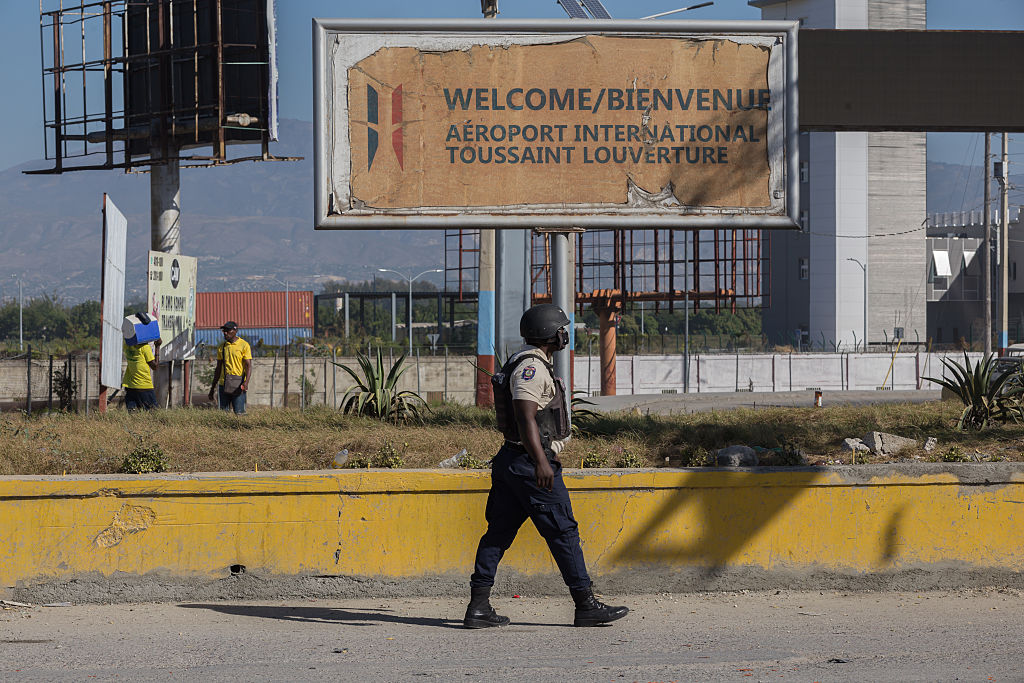Reconstruction Will Be the Real Challenge
Reconstruction Will Be the Real Challenge
"Haiti will quite literally need to be rebuilt from the ground up," writes COA's Eric Farnsworth. The United States, aided by partners in the international community, "should work together under a special new UN mandate to restore the nation and put it on a new path to long-term, sustainable development. This is where the true test of U.S. leadership will come," he added.
As the full ramifications of the Haiti crisis became fully apparent, the Administration, still smarting from reaction to the attempted Christmas Day airline bombing as well as visions of another Katrina, went into overdrive to respond. In public comments the President talked about an open commitment to Haiti while rallying former Presidents Clinton and Bush to head up relief efforts; the Secretary of State cut short her trip to Asia to hit the airwaves prior to traveling to Haiti; the Vice President, Secretary of Homeland Security, and others addressed the issue fast and hard to show a coordinated, meaningful response including provision of TPS for illegal Haitians in the United States. And indeed, the response has been coordinated and meaningful, in terms of an outpouring of US government resources, from rescue operations to logistics and provision of mobile healthcare, to security operations in coordination with MINUSTAH in an attempt to keep order in an increasingly desperate situation. It’s unclear where this disaster will fall on the scale of hemispheric calamities. It is certainly one of the most tragic. But the quick action by the United States has been a bright spot, in coordination with others but not waiting for others to move before taking decisive actions to mobilize a response.
Still, for all that, the real challenges may well come in terms of reconstruction. Even in good times, Haiti is an economic wreck, balancing precariously on the razors edge of calamity. The government is weak and untrusted, corrupt, and unable in many ways to provide the basic services for its citizens that many others across the Caribbean take for granted. The long-term deployment of a UN mission on the ground is a constant reminder of this. Jobs are scarce, unemployment hovers at unimaginable levels, investment is weak, the gap between elites and others is huge, growing, and highly visible. The fact that so many literally risk their lives attempting to cross the Florida straights on rickety, homemade crafts shows the desperation that is often felt by those attempting to better their lives. And that was before the earthquake hit.
Haiti will quite literally need to be rebuilt from the ground up. The United States should take a leading role in the effort, although others including France, Canada, Japan, the EU, and the United Nations among others should work together under a special new UN mandate to restore the nation and put it on a new path to long-term, sustainable development. This is where the true test of US leadership will come. (It is also a test for other hemispheric nations, who claim to want a new partnership with the United States, and the OAS, which seeks a new hemispheric relevance. It is also a validation of the US strategy for restoring democracy to Honduras absent crippling economic sanctions such as those visited upon Haiti in the early 1990s from which the Haitian economy had still not fully recovered prior to the quake.) It is really quite fortunately that the Clintons honeymooned in Haiti, which has informed their own personal connection to the long term development of the island. A long term project will require long term attention, and political will that goes beyond the provision of emergency relief efforts. Trade provisions should be expanded and incentives created for investment in Haiti in a manner that will create new, good, well-paying jobs (including in the Dominican Republic, which will see a large increase in migrants from Haiti). Agriculture provisions that directly or indirectly hurt Haiti’s ability to compete should be amended. A new commitment to educating Haiti’s people should be announced and aggressively funded. Long term security will need to be provided and mass migration discouraged. And the bully pulpit should be used. For example, as a number of Administration officials travel to Davos shortly for the World Economic Forum, they should lead an effort to mobilize a small percentage of the global wealth represented in Davos for the desperate masses clinging to life in Haiti.
As Chou Enlai once said when asked about the impact of the French Revolution, it’s too soon to say whether the Administration’s response to Haiti has been successful. Initial indications are very good. Still, the longer term development issues will write the story in the end, and in that regard efforts must begin right away.








